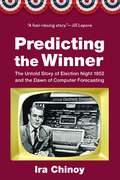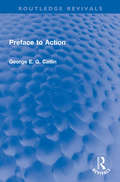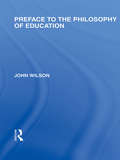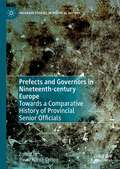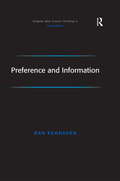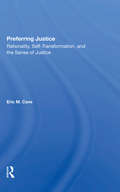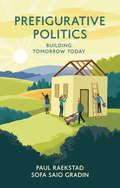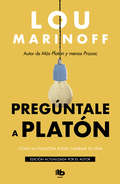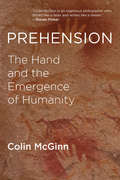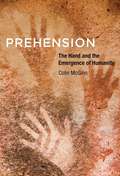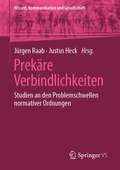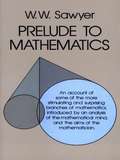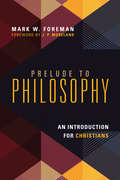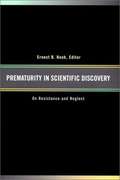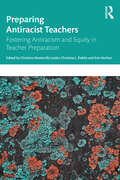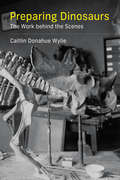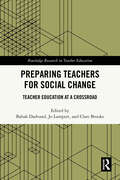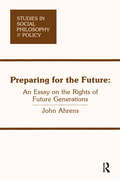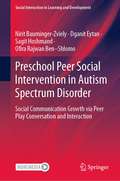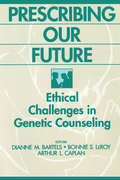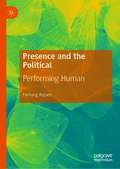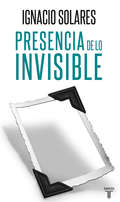- Table View
- List View
Predicting the Winner: The Untold Story of Election Night 1952 and the Dawn of Computer Forecasting
by Ira ChinoyThe history of American elections changed profoundly on the night of November 4, 1952. An outside-the-box approach to predicting winners from early returns with new tools—computers—was launched live and untested on the newest medium for news: television. Like exhibits in a freak show, computers were referred to as &“electronic brains&” and &“mechanical monsters.&” Yet this innovation would help fuel an obsession with numbers as a way of understanding and shaping politics. It would engender controversy down to our own time. And it would herald a future in which the public square would go digital. The gamble was fueled by a crisis of credibility stemming from faulty election-night forecasts four years earlier, in 1948, combined with a lackluster presentation of returns. What transpired in 1952 is a complex tale of responses to innovation, which Ira Chinoy makes understandable via a surprising history of election nights as venues for rolling out new technologies, refining methods of prediction, and providing opportunities for news organizations to shine. In Predicting the Winner Chinoy tells in detail for the first time the story of the 1952 election night—a night with continuing implications for the way forward from the dramatic events of 2020–21 and for future election nights in the United States.
Preface to Action (Routledge Revivals)
by George E. CatlinFirst published in 1934, Preface to Action was written to provoke thought on society and its structure and to enable readers to make a considered judgement at election, particularly those with less time to make their decision. The book discusses the conflict between wanting to make an informed political decision, and not having the time or all the information to do so. In light of this, Catlin brings together what he considers useful points to help guide readers towards a decision. He outlines his personal opinions and explains his reasons for them. Divided into three parts, the book first explores psychology and considers what institutional forms would best satisfy what he identifies as the major human instincts or impulses. The second part considers the community, whether it is state or nation, and what the best form of it is. The third part is a detailed exploration of the religions of Catholicism, Toryism, Fascism, and Communism. Preface to Action will be of great appeal to those with an interest in twentieth century British and European history, the history of politics, the history of political thought, and political psychology.
Preface to the philosophy of education (International Library of the Philosophy of Education Volume 24)
by John WilsonIt is sometimes said that the philosophy of education is not a serious and coherent philosophical area of inquiry. John Wilson examines this argument, taking it as the starting point for his book. He believes that most 'philosophy of education' until now has been little more than the promotion of particular ideologies, and that progress can be made only by a more analytical approach. The central problems lies in establishing a few basic concepts, principles and categories and questions which will form the skeleton of the subject. He therefore outlines the nature of 'philosophy of education' and defines some of its major problems by examining key notions such as the value of education, the nature and implications of learning and what should be learned.
Prefects and Governors in Nineteenth-century Europe: Towards a Comparative History of Provincial Senior Officials (Palgrave Studies in Political History)
by Pierre Karila-CohenThis edited collection presents a pan-European history of intermediary government and administration in nineteenth-century Europe. Taking a closer look at senior government officials who represented the sovereign or state far away from the capital, the book highlights the intermediary nature of their roles, which fell somewhere between the municipality and central bureaucracy. Against the backdrop of revolution and upheaval brought about by the Enlightenment and the First World War, the nineteenth century was a crucial period for reform and political change. Taking a transnational approach, the contributors examine the similarities between the challenges that faced government officials in different European states, focusing on their common role as mediators: firstly, between the ‘centre’ and the ‘peripheries’; and secondly, between the population and hierarchies of power. The status and prerogative of these officials are discussed, providing insights into the lives of French Préfets, Prussian Oberpräsidenten, Austrian Statthalter, Italian Prefetti, dutch Commissarissen des Konings and governors in Russia and Spain. The special case of the United Kingdom, where there were neither prefects nor governors, serves as a mirror. Dismantling the barriers between different national histories, this book represents a comprehensive and comparative investigation into the roles of nineteenth-century provincial administrators in Europe, an important read for anyone researching European political history or the history of the state.
Preference and Information (Ashgate New Critical Thinking in Philosophy)
by Dan EgonssonIs it important to our quality of life that the preferences we satisfy are rational and well-informed? Standard preferentialist theories allege that a person's preferences and their satisfaction are the correct measure of well-being. In preference-sensitive theories, preferences are important but do not count for everything. This raises the question of whether we ought to make demands on these preferences. In this book Egonsson presents a critical analysis of the 'Full Information Account of the Good', which claims that only the satisfaction of rational and fully informed preferences has value for a person. The problems he deals with include: how is an information requirement to be formulated and shaped? Is it possible to design a requirement that is both neutral to the agent's epistemic situation and reasonable? Is the requirement reasonable? Does it make sense to claim that some are better off if we satisfy the preferences they would have had in some merely hypothetical circumstances? This is an important new book on preference rationality which will be of great interest to academics and students of ethics, quality of life, and rationality.
Preference, Value, Choice, and Welfare
by Daniel M. HausmanThis book is about preferences, principally as they figure in economics. It also explores their uses in everyday language and action, how they are understood in psychology and how they figure in philosophical reflection on action and morality. The book clarifies and for the most part defends the way in which economists invoke preferences to explain, predict and assess behavior and outcomes. Hausman argues, however, that the predictions and explanations economists offer rely on theories of preference formation that are in need of further development, and he criticizes attempts to define welfare in terms of preferences and to define preferences in terms of choices or self-interest. The analysis clarifies the relations between rational choice theory and philosophical accounts of human action. The book also assembles the materials out of which models of preference formation and modification can be constructed, and it comments on how reason and emotion shape preferences.
Preferring Justice: Rationality, Self-transformation, And The Sense Of Justice
by Eric CaveThis manuscript is about the sense of justice that limits what individuals can do in pursuit of their ends and opens them to exploitation. It shows how flawed agents choosing under partial information advance those of their ends having nothing to do with justice by maintaining such a disposition.
Prefigurative Politics: Building Tomorrow Today
by Paul Raekstad Sofa Saio GradinMany of us wonder what we could possibly do to end oppression, exploitation, and injustice. People have studied revolutions and protest movements for centuries, but few have focused on prefigurative politics, the idea of 'building the new society within the shell of the old'. Fed up with capitalism? Get organised and build the institutions of the future in radical unions and local communities. Tired of politicians stalling on climate change? Set up an alternative energy collective. Ready to smash racism and the patriarchy? Root them out in all areas of our lives, not just in 'high politics'. This is the first book dedicated to prefigurative politics, explaining its history and examining the various debates surrounding it. How can collective decision-making be inclusive? In what ways are movements intersectional? Can prefigurative organisations scale up? It is a must-read for students of radical politics, anarchism, and social movements, as well as activists and concerned citizens everywhere.
Prefiguring the Idea of the University for a Post-Capitalist Society (Marxism and Education)
by Gary SaundersUsing an Open Marxist theoretical framework, this book provides a critique of the neoliberal reforms made to higher education since the late 1970s and the impact this has had on the sector. Rather than arguing for a return to the idea of the public university, the book argues that public and private models of higher education are both forms of capitalist accumulation and have historically perpetuated forms of oppression, exploitation and discrimination; thus, a more radical solution that addresses both the current crisis of higher education and the contradictory and exploitative nature of late capitalism is required. This book critically examines the autonomous learning spaces that emerged out of the UK student protests (2009-2010) and documents what can be learned from them to prefigure the idea of the university for a post-capitalist society.
Pregúntale a Platón: Como La Filosofia Puede Cambiar Tu Vida
by Lou Marinoff¿Es necesario el sufrimiento? ¿Nos guía la razón o la pasión? ¿Qué es el amor? En Pregúntale a Platón encontrarás respuesta a todas las preguntas que plantea la vida. Siguiendo la línea de su exitoso Más Platón y menos Prozac, Lou Marinoff, consciente de que los seres humanos nos preguntamos sobre el pasado, el presente y el futuro, y necesitamos otorgar sentido a lo que nos sucede, ayuda al lector a tomar decisiones. Este apasionante recorrido por los grandes filósofos de la historia incluye ejemplos prácticos en los que el lector encontrará las respuestas que anhela, aprenderá a transformar el malestar en bienestar, y podrá construir su propia filosofía de la vida. La crítica ha dicho...«Marinoff ha descubierto una línea narrativa donde, a través de casos reales, el lector consigue integrar la filosofía en su propio entorno.»ABC Cultural
Prehension: The Hand and the Emergence of Humanity
by Colin McGinnIn praise of the hand: A philosopher considers the crucial role of the hand in human evolution, particularly with respect to language. This book is a hymn to the hand. In Prehension, Colin McGinn links questions from science to philosophical concerns to consider something that we take for granted: the importance of the hand in everything we do. Drawing on evolutionary biology, anatomy, archaeology, linguistics, psychology, and philosophy, among other disciplines, McGinn examines the role of the hand in shaping human evolution. He finds that the development of our capacity to grasp, to grip, to take hold (also known as prehension) is crucial in the emergence of Homo sapiens. The human species possesses language, rational thought, culture, and a specific affective capacity; but there was a time when our ancestors had none of these. How did we become what we so distinctively are, given our early origins? McGinn, following Darwin and others, calls the hand the source of our biological success. When our remote ancestors descended from trees, they adopted a bipedal gait that left the hands free for other work; they began to make tools, which led to social cooperation and increased brain capacity. But McGinn goes further than others in arguing for the importance of the hand; he speculates that the hand played a major role in the development of language, and presents a theory of primitive reference as an outgrowth of prehension. McGinn sings the praises of the hand, and evolution, in a philosophical key. He mixes biology, anthropology, analytical philosophy, existential philosophy, sheer speculation, and utter amazement to celebrate humans' achievement of humanity.
Prehension: The Hand and the Emergence of Humanity
by Colin McginnThis book is a hymn to the hand. In Prehension, Colin McGinn links questions from science to philosophical concerns to consider something that we take for granted: the importance of the hand in everything we do. <P><P>Drawing on evolutionary biology, anatomy, archaeology, linguistics, psychology, and philosophy, among other disciplines, McGinn examines the role of the hand in shaping human evolution. He finds that the development of our capacity to grasp, to grip, to take hold (also known as prehension) is crucial in the emergence of Homo sapiens. The human species possesses language, rational thought, culture, and a specific affective capacity; but there was a time when our ancestors had none of these. How did we become what we so distinctively are, given our early origins? McGinn, following Darwin and others, calls the hand the source of our biological success. When our remote ancestors descended from trees, they adopted a bipedal gait that left the hands free for other work; they began to make tools, which led to social cooperation and increased brain capacity. But McGinn goes further than others in arguing for the importance of the hand; he speculates that the hand played a major role in the development of language, and presents a theory of primitive reference as an outgrowth of prehension. McGinn sings the praises of the hand, and evolution, in a philosophical key. He mixes biology, anthropology, analytical philosophy, existential philosophy, sheer speculation, and utter amazement to celebrate humans' achievement of humanity.
Prekäre Verbindlichkeiten: Studien an den Problemschwellen normativer Ordnungen (Wissen, Kommunikation und Gesellschaft)
by Jürgen Raab Justus HeckVertrauensverluste und Glaubwürdigkeitskrisen von gesellschaftlichen Institutionen sind Ausdruck der Pluralisierung von Werten und Normen und der zunehmenden Verhandelbarkeit, Labilität und Ungewissheit für allgemein und beständig genommener Verbindlichkeiten. Die im Band versammelten Studien zu Sprechweisen, Freiheitsdiskussionen, Rechtsfindungen und Polizeiarbeiten geben solch prekäre Verbindlichkeiten als Problemschwellen normativer Ordnungen zu erkennen. Ihre Komplexität fordert die Geistes-, Kultur und Sozialwissenschaften heraus, tradierte Verständnisse, Begriffe und Methoden zu prüfen, zu aktualisieren, zu erweitern und zu verfeinern. Diese Sondierungs- und Präzisierungsarbeiten sind nur interdisziplinär zu leisten. Hierfür stellt das hier unterbreitete Forschungskonzept der prekären Verbindlichkeiten ein vielversprechendes Potential in Aussicht.
Prelude to Mathematics
by W. W. Sawyer"No mathematician can be a complete mathematician unless he is also something of a poet." -- K. WeierstrassIn this lively and stimulating account, noted mathematician and educator W. W. Sawyer (Professor Emeritus, University of Toronto) defines mathematics as "the classification and study of all possible patterns." It is a broad definition, but one that seems appropriate to the great scope and depth of the topic. Indeed, mathematics seems to have few boundaries, either in applications to practical matters or in its mind-stretching excursions into realms of pure abstraction.Gearing his approach to the layman whose grasp of things mathematical may be a bit precarious, Professor Sawyer offers a lucid, accessible introduction to the mathematician's cast of mind. Five well-written preliminary chapters explore the beauty, power and mysticism of mathematics; the role of math as an adjunct in utilitarian matters; and the concepts of pattern, generalization and unification as both tools and goals of mathematical thought.After developing this conceptual groundwork, the author goes on to treat of more advanced topics: non-Euclidean geometry, matrices, projective geometry, determinants, transformations and group theory. The emphasis here is not on mathematics with great practical utility, but on those branches which are exciting in themselves -- mathematics which offers the strange, the novel, the apparently impossible -- for example, an arithmetic in which no number is larger than four.Mathematicians will appreciate the author's grasp of a wide range of important mathematical topics, and his ability to illuminate the complex issues involved; laymen, especially those with a minimal math background, will appreciate the accessibility of much of the book, which affords not only a portrait of mathematics as a matchless tool for probing the nature of the universe, but a revealing glimpse of that mysterious entity called "the mathematical mind." Professor Sawyer has further enhanced this new Dover edition with updated material on group theory, appearing here in English for the first time.
Prelude to Philosophy: An Introduction for Christians
by J. P. Moreland Mark W. ForemanPrelude to Philosophy
Prelude to Philosophy: An Introduction for Christians
by Mark W. Foreman"The unexamined life is not worth living," according to Socrates, but pursuing the examined life strikes many as daunting, unappealing and even unnecessary. Is philosophy important? Why do I need philosophy if I have the Bible? Aren't philosophers simply engaged in meaningless disputes that are irrelevant to everyday life? Mark Foreman addresses these and other questions in this "prelude" to the subject. Unlike a full introduction to philosophy, this book is a preliminary discussion that dispels misunderstandings and explains the rationale for engaging in philosophical reasoning. In the first half of the book, Foreman defines the task of philosophy, compares it to other disciplines and demonstrates its practical value to Christians interested in developing a more thoughtful faith. The second half introduces the reader to logic and argumentation, the essential tools of a philosopher. Concise and straightforward, Prelude to Philosophy is a guide for those looking to embark on the "examined life."
Prematurity in Scientific Discovery: On Resistance and Neglect
by Ernest B. HookIn a much-discussed paper published in Scientific American in 1972, molecular biologist Gunther Stent proposed an explicit criterion for one kind of obstacle to scientific discovery. Stent suggested that it was appropriate for the scientific community to ignore such hypotheses so that it would not be overwhelmed by vast numbers of false leads. In this volume, eminent scientists, physicians, historians, social scientists, and philosophers respond to Stent's thesis.
Preparing Antiracist Teachers: Fostering Antiracism and Equity in Teacher Preparation
by Christina L. Dobbs Christine Montecillo Leider Erin NerlinoPreparing Antiracist Teachers: Fostering Antiracism and Equity in Teacher Preparation examines multiple strategies and theories for developing antiracist attitudes and actions in teachers and teacher candidates. This textbook uses critical consciousness as a framework to help practitioners and scholars to facilitate the process of doing antiracist work.The book is divided into three sections, with Part 1 focusing on critical reflection, which refers to a social analysis and moral rejection of societal inequities, such as social, economic, racial/ethnic, and gender inequities, that constrain well-being and human agency. It shows that those who are critically reflective view social problems and inequalities in systemic terms and are therefore better able to address them. Part 2 examines sociopolitical efficacy, which refers to the perceived capacity to effect social and political change by individual and/or collective activism. Part 3 centers on critical action, that is, individual or collective action taken to change aspects of society, such as institutional policies and practices, that are perceived to be unjust. This is a broad view of activism that can include participation in activities such as voting, community organizing, and peaceful protests.Showcasing both USA-based and international case studies, Preparing Antiracist Teachers will support teacher educators in their work by presenting nuanced and important means of teacher education for antiracism and critical consciousness. It will also benefit those studying related courses, including Teacher Education, Social Justice Education, and Multicultural Education.
Preparing Dinosaurs: The Work behind the Scenes
by Caitlin Donahue WylieAn investigation of the work and workers in fossil preparation labs reveals the often unacknowledged creativity and problem-solving on which scientists rely.Those awe-inspiring dinosaur skeletons on display in museums do not spring fully assembled from the earth. Technicians known as preparators have painstakingly removed the fossils from rock, repaired broken bones, and reconstructed missing pieces to create them. These specimens are foundational evidence for paleontologists, and yet the work and workers in fossil preparation labs go largely unacknowledged in publications and specimen records. In this book, Caitlin Wylie investigates the skilled labor of fossil preparators and argues for a new model of science that includes all research work and workers.Drawing on ethnographic observations and interviews, Wylie shows that the everyday work of fossil preparation requires creativity, problem-solving, and craft. She finds that preparators privilege their own skills over technology and that scientists prefer to rely on these trusted technicians rather than new technologies. Wylie examines how fossil preparators decide what fossils, and therefore dinosaurs, look like; how labor relations between interdependent yet hierarchically unequal collaborators influence scientific practice; how some museums display preparators at work behind glass, as if they were another exhibit; and how these workers learn their skills without formal training or scientific credentials. The work of preparing specimens is a crucial component of scientific research, although it leaves few written traces. Wylie argues that the paleontology research community's social structure demonstrates how other sciences might incorporate non-scientists into research work, empowering and educating both scientists and nonscientists.
Preparing Teachers for Social Change: Teacher Education at a Crossroad (Routledge Research in Teacher Education)
by Jo Lampert Clare Brooks Babak DadvandThis book critically evaluates the dynamic landscape of teacher education on a global scale, delving into its recent advancements, innovations, and emerging paradigms. Recognizing the need to arm teachers with the capacity to address contemporary challenges, the authors emphasize inventive approaches within teacher education that can foster the ability to confront problems such as unprecedented inequality, resurgence of ultra-right movements, environmental crises, and the interconnected dilemmas of today's world.By analysing the intricacies, strengths, and limitations inherent in existing teacher education models, Dadvand, Lampert, and Brooks and their contributors examine current frameworks and consider the potential and drawbacks in preparing educators to effectively tackle multifaceted challenges. The chapters focus on the opportunities and limitations presented by ongoing trends in Initial Teacher Education, particularly in relation to the most urgent issues of our time.This valuable resource for educators, policymakers, and researchers is an essential read for anyone committed to fostering social justice and inclusive education and seeking to equip educators for the challenges of today's world.
Preparing for the Future: An Essay on the Rights of Future Generations
by John AhrensDoes the present generation have a moral obligation to conserve resources for future generations? Must we accept drastic reductions in our standard of living, and give up the ideals of individual liberty and technological progress in order to preserve the environment? PREPARING FOR THE FUTURE offers an unfashionably optimistic answer to these questions: that future generations cannot have a right to a share of existing resources, because only living persons can have rights. Rejecting the sacrifices that most traditional ethical principles would require of us, it advocates, instead, that members of the present generation may legitimately use all of the resources at their disposal to realize their own values.
Preschool Peer Social Intervention in Autism Spectrum Disorder: Social Communication Growth via Peer Play Conversation and Interaction (Social Interaction in Learning and Development)
by Nirit Bauminger-Zviely Dganit Eytan Sagit Hoshmand Ofira Rajwan Ben–ShlomoThis book presents the Preschool Peer Social Intervention (PPSI), a manualized comprehensive social curriculum to enhance peer-interaction for pre-schoolers with Autism Spectrum Disorders (ASD) in three key domains: play, interaction, and conversation. The book outlines the PPSI’s transactional approach in each of the three intervention domains and incorporates developmental features and age-appropriate play, interaction, and conversation skills while accounting for individual differences in social communication abilities. The intervention is designed to be implemented within the child’s natural social environment, such as preschool, and it includes the child’s social agents, namely, their peers, teachers, and parents. PPSI intervention curricula addressed in this book are based on typical play, interaction, and conversation development, taking into account the social and communication challenges found to characterize young children with ASD in these domains. Building up the ability to play, interact and converse more efficiently with peers may render a substantial impact on preschoolers with ASD, with vast potential for improving not only these children’s immediate social experience with peers, but also their future social competence that relies on these early building blocks.
Prescribing Our Future: Ethical Challenges in Genetic Counseling
by Diane M. Bartells Bonnie LeRoyGenetic counselors translate the findings of scientific investigation into meaningful accounts that enable individuals and families to make decisions about their lives. This collection of original papers explores the history, values, and norms of that process, with some focus on the value of nondirectiveness in counseling practice. The contributors; examination of genetic counseling issues serves as a foundation from which to address other ethical, legal, and policy considerations in the expanding universe of clinical genetics.
Presence and the Political: Performing Human
by Farhang RajaeeThis book deals with a concern of how humanity performs toward itself and how it performs within the public realm, and where it must be in relation with others. Public life is not solely about politics but also the political, i.e., intellectual, moral, economic, religious, and collective habits—including fashions and amusements, artefacts, histories, and legacies. This book argues that man raison d'être in worldly life is to have a civil presence and create civilization. It contends that what makes it possible is the coming together of “presence, ethos, and theatre” and their working in concert. The first half of this book elaborates on the nuances of these three pillars, and the second half offers three examples of civilizations that have succeeded to achieve this within what it claims to be three major worldviews that he calls “divine-immanence, the divine-transcendence, and human-immanence.”
Presencia de lo invisible
by Ignacio SolaresA través de dieciséis ensayos, Ignacio Solares revela capítulos desconocidos de la vida de grandes personajes de la historia. De Ignacio Solares, ganador del Premio Fernando Benítez. ¿Fue la Revolución Mexicana resultado de las lecturas espíritas de Madero? ¿Víctor Hugo tuvo conversaciones con el "otro" mundo? ¿Cuál fue la verdadera razón del ateísmo de Sartre? Presencia de lo invisible, en dieciséis ensayos, desvela episodios -muchos de ellos desconocidos- de las vidas de grandes personalidades. El giro hacia el ocultismo que dio el racionalismo irredento de Freud al final de su vida; las levitaciones de Santa Teresa, tan relacionadas con su enfermedad histérica; la creencia de Jung en los fenómenos paranormales; la hipocondría de Camus relacionada con su literatura; la relación del psicoanálisis y la religión; las dudas de Graham Greene, más que su fe misma, son algunos de los temas que el lector encontrará en este libro. Lo que ha dicho la crítica: "Ignacio Solares rescata en este ameno libro algunos de los casos más notables. A los 16 capítulos, que tienen títulos como Freud y la parasicología, Madero y los escritos espiritistas que desataron un revolución y Violencia y/o civilización, escritos con elegancia y precisión sólo les falta una cosa: más capítulos con más casos interesantes, pues el libro nos deja deseando mucho más". -Manuel Lino, El Economista.
